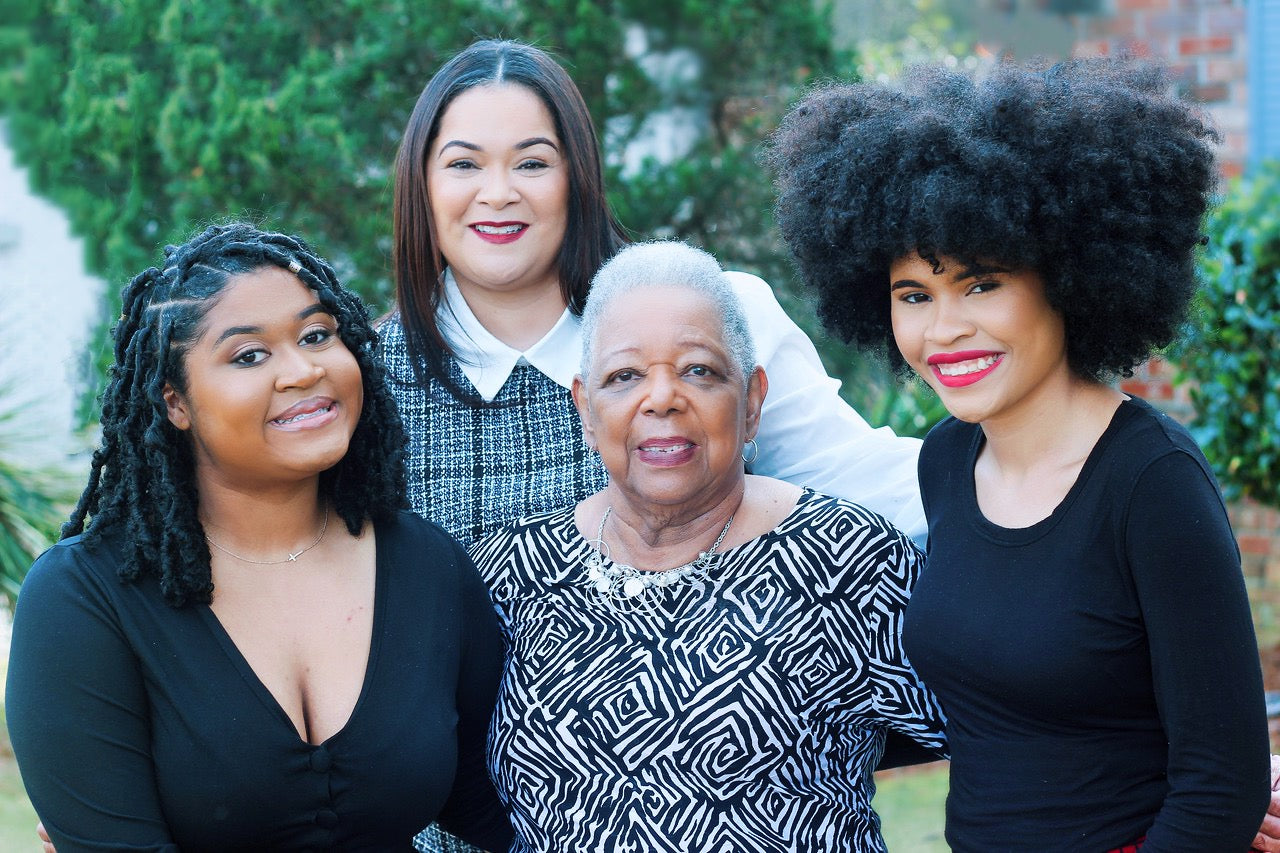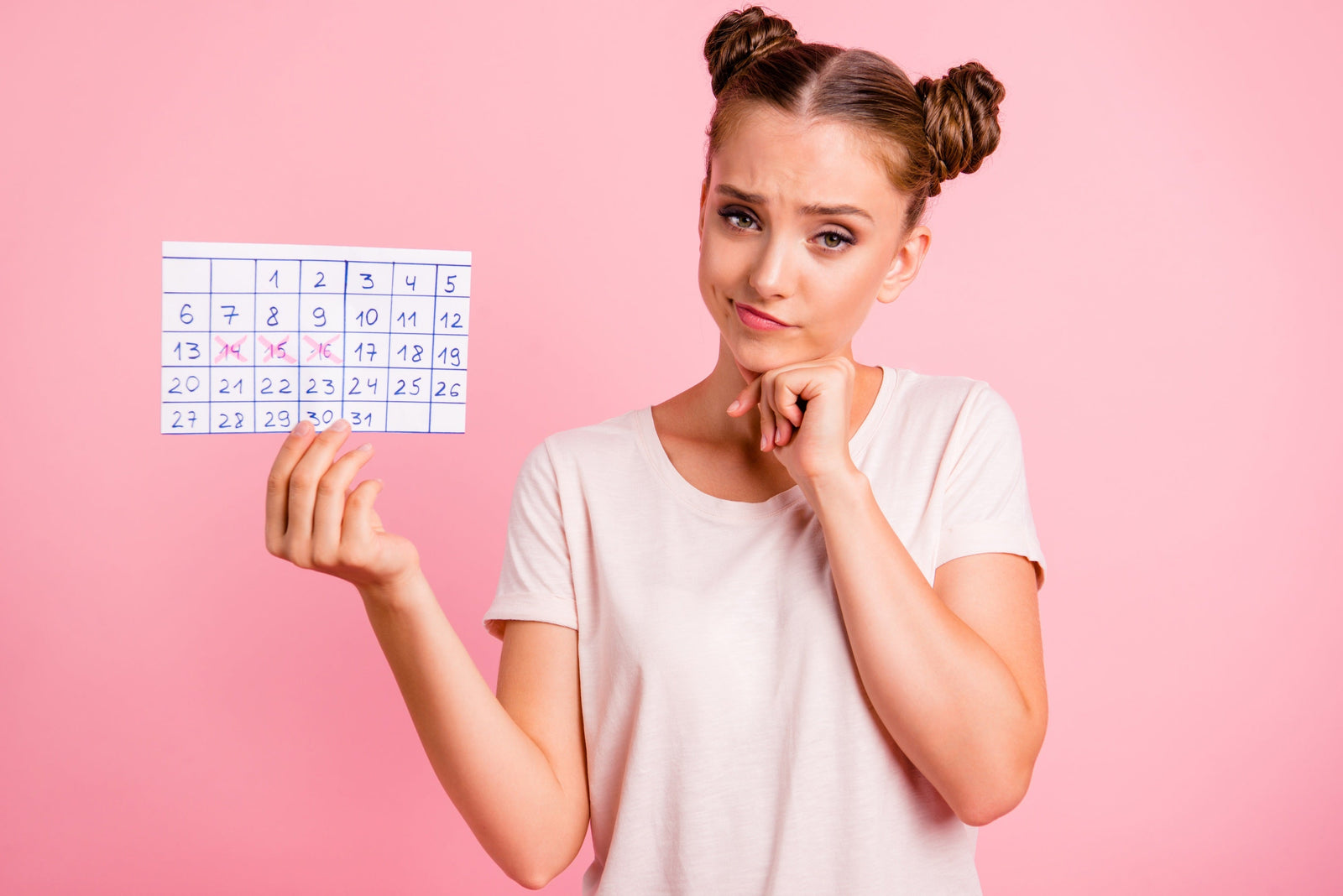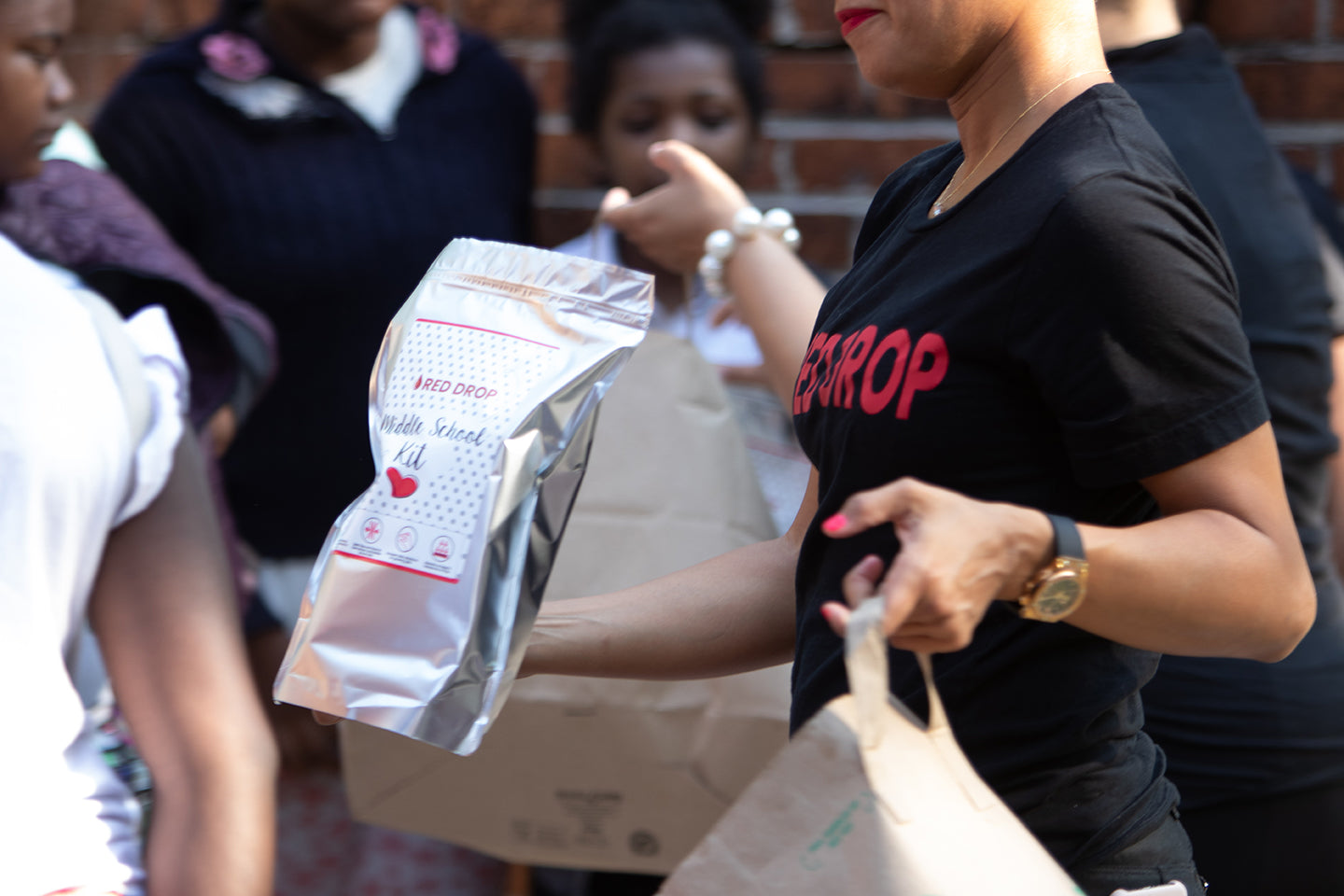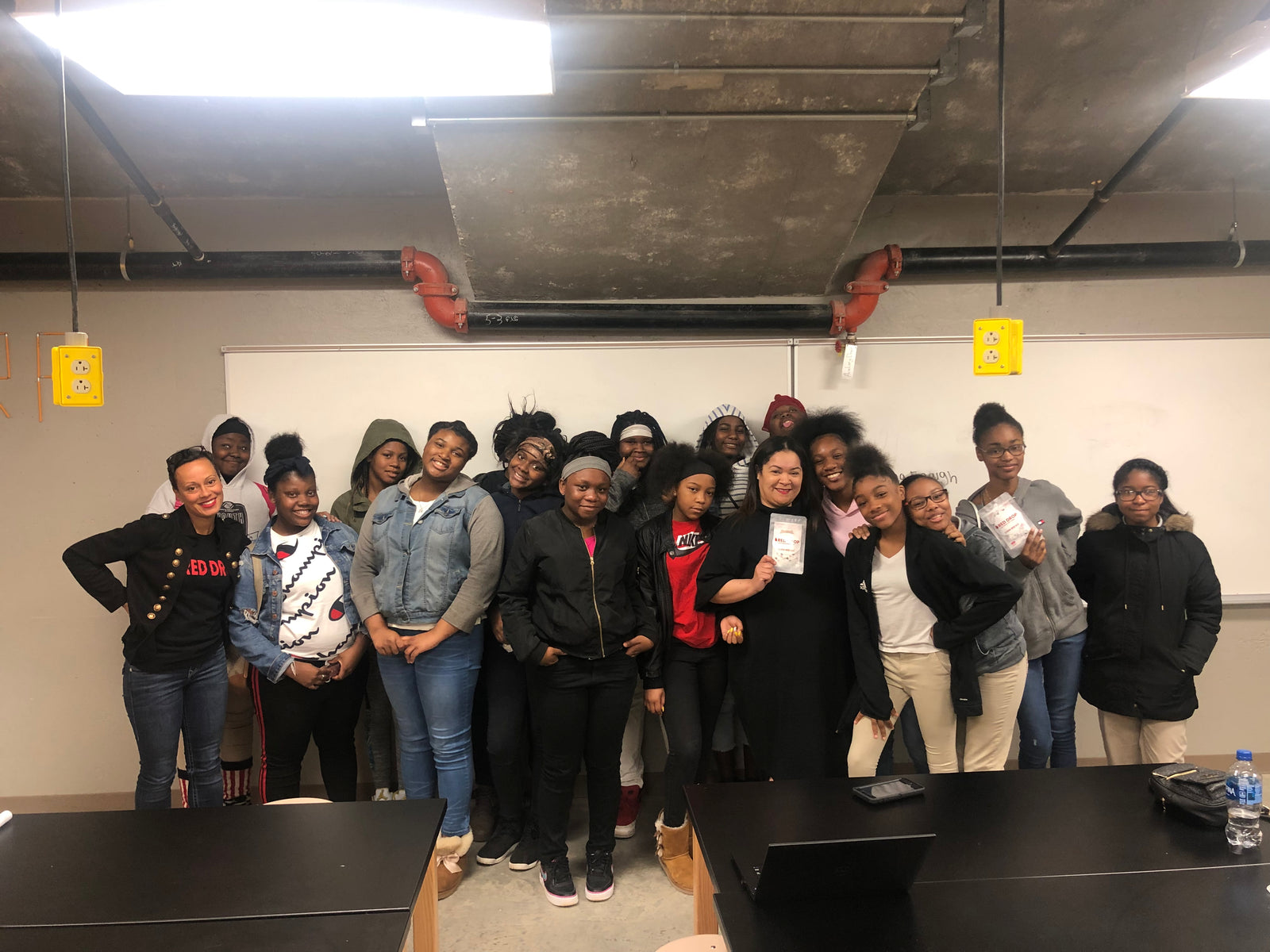Being a dad to a daughter who’s starting her period can feel intimidating. You might worry about saying the wrong thing, not knowing enough, or feeling awkward about a topic that seems outside your wheelhouse. But here’s the truth: your support during this important time can make all the difference in how your daughter feels about her changing body and this new phase of her life.
At Scarlet by RedDrop, we know that when dads are informed and involved, daughters feel more supported and confident. You don’t need to be an expert. You just need to be present, caring, and willing to learn alongside your daughter.
Why Your Support Matters So Much
You’re Not Just “The Dad” But a Primary Support Person Your daughter looks to you for guidance, comfort, and reassurance about all aspects of growing up. Periods are no different. When you approach this topic with the same care and attention you’d give to helping her with homework or learning to drive, you send a powerful message that her health and wellbeing matter to you.
You’re Modeling How Men Should Treat Women How you respond to your daughter’s period sets an example for how she expects to be treated by future partners, friends, and colleagues. When you’re supportive and understanding, you’re teaching her that her natural bodily functions deserve respect and care.
You Can Reduce Shame and Embarrassment Many girls feel embarrassed about their periods, especially around male family members. When you normalize period talk and respond with kindness rather than discomfort, you help eliminate the shame that can surround menstruation.
Understanding the Basics: What You Need to Know
When Periods Typically Start Most girls get their first period between ages 10-15, with the average being around 12 years old. However, some start earlier or later, and both are completely normal. Your daughter might show signs like breast development, growth spurts, or mood changes before her period begins.
What Actually Happens A period is the monthly shedding of the lining of the uterus when pregnancy doesn’t occur. This results in bleeding that lasts typically 3-7 days. The entire menstrual cycle is usually 21-35 days, though it can be irregular for the first few years.
Common Symptoms Your Daughter Might Experience
- Cramps in her lower abdomen or back
- Mood changes or emotional sensitivity
- Fatigue or lower energy
- Bloating or changes in appetite
- Headaches
- Breast tenderness
- Skin changes or breakouts
Important: These Are Normal All of these symptoms are part of normal development. Your job isn’t to fix them (though comfort helps), but to understand and support your daughter through them.
Understanding Period Products: A Dad’s Shopping Guide
Pads: The Foundation Option Pads are absorbent materials that stick to underwear to catch menstrual blood. They sit outside the body and are often the first product girls try.
Scarlet by RedDrop Pad Options:
- EveryDay Pads (Size 1): Specifically designed for tweens and lighter flow days at about 6.3 inches long
- FlowDay Pads (Size 2): Medium protection for regular flow days
- FlowNight Pads (Size 3): Longer coverage for heavier flow or overnight protection
- Maximum Protection Pads (Size 4): Heaviest-duty option for very heavy flow days
When to buy pads: Always keep a variety of sizes available. Most girls start with smaller sizes and may need different options as their flow changes.
Period Underwear: The Game Changer Period underwear looks like regular underwear but has built-in absorbent layers. Our period underwear is sized specifically for tween and teen bodies and comes in different absorbency levels.
When to consider period underwear: Great for active girls, sports, or as backup protection. Also excellent for girls who want to feel like they’re wearing regular underwear.
Tampons: For Active Lifestyles Tampons are cylindrical absorbent products inserted into the vagina. Scarlet by RedDrop tampons (coming soon) will be designed with teen bodies in mind, featuring appropriate sizing and comfortable applicators.
When to consider tampons: Usually for older tweens and teens comfortable with insertion (typically 13+), especially for swimming and sports activities.
Menstrual Cups: The Long-Term Solution Menstrual cups are small, flexible cups made of medical-grade silicone that collect menstrual fluid. Our upcoming menstrual cup will be specifically sized for teen bodies.
When to consider cups: Best for older teens comfortable with insertion (typically 15+) who want long-term, environmentally friendly options.
Preparing for The Conversation
Start Early and Keep It Casual Don’t wait for one big “period talk.” Instead, start having casual conversations about growing up and body changes when she’s around 8-9 years old. This makes the topic feel normal rather than scary or secretive.
Use Proper Terms Say “period,” “menstruation,” “uterus,” and “vagina.” Using correct terminology shows that this is a normal, healthy topic worth discussing properly, not something to whisper about or use code words for.
Focus on Normalcy and Health Frame periods as a sign that her body is healthy and developing normally, not as a burden or something to dread. Explain that roughly half the world’s population experiences periods. It’s completely normal.
Be Ready for Questions She might ask about your knowledge, whether you’re uncomfortable, or compare her experience to her friends’. Be honest: “I haven’t experienced periods myself, but I want to learn so I can support you.”
What to Say (And What Not to Say)
Helpful Responses:
- “This is a normal part of growing up, and I’m here to support you.”
- “What do you need from me to feel more comfortable?”
- “Let’s make sure you have everything you need for school.”
- “It’s okay if you need to stay home today. We’ll figure out what helps.”
- “Do you want to talk to Mom/another woman about this, or are you comfortable talking with me?”
Avoid These Responses:
- “You’re becoming a woman now” (puts pressure on her to act differently)
- “This is just part of being a girl” (can sound dismissive)
- “You’ll have to deal with this every month now” (makes it sound like a burden)
- “Ask your mom/sister about this” (if said dismissively, makes her feel like you can’t handle supporting her)
Practical Support: What She Actually Needs
Period Supply Shopping Without Embarrassment Learn about the different products available and be willing to buy them confidently. Keep a variety of options at home and don’t make her feel like she needs to hide her period supplies.
Shopping List for Dads:
- Various sizes of pads (start with smaller, teen-appropriate sizes)
- Period underwear for backup protection
- Emergency kits for school (Scarlet by RedDrop’s Code Red Kit is perfect)
- Comfort items like heating pads and appropriate pain relief
- Wet wipes or personal hygiene products
Emergency Planning
- Keep period supplies in your car and at home
- Make sure she has emergency kits at school
- Have a plan for picking her up if she needs to come home
- Keep appropriate pain relief medication available
- Know which stores carry period products in case you need to make emergency runs
Comfort Support
- Learn what helps her feel better (heating pads, certain foods, rest)
- Be flexible with activities and responsibilities when she’s not feeling well
- Create a comfortable environment at home during difficult period days
- Stock up on her favorite comfort foods or warm beverages
Handling Different Scenarios
Her First Period Stay calm and positive. If she comes to you first, consider it an honor. She trusts you to handle this important moment. Have supplies ready, help her get comfortable, and celebrate this milestone appropriately.
Period Emergencies at School Be available to bring supplies or pick her up if needed. Don’t make her feel like she’s inconveniencing you. Period accidents happen, and they’re not her fault. Have a plan for discreet supply delivery if needed.
When She’s in Pain Validate her discomfort. Period pain is real and can be significant. Help her find relief through heat, appropriate pain medication, or rest. If pain is severe enough to interfere with daily activities, consider consulting a healthcare provider.
Shopping Trips for Period Products Approach this like any other health-related shopping. Be matter-of-fact, ask what she needs, and don’t act embarrassed. If she’s too shy to shop with you, offer to shop alone with her list.
Mood Changes and Emotions Hormonal changes can affect mood, but that doesn’t mean you should dismiss her emotions as “just PMS.” Listen to her concerns, provide comfort, and remember that her feelings are valid even if they’re influenced by hormones.
Communication Strategies
Regular Check-ins Make period health part of regular conversations about her overall wellbeing. “How are you feeling? Do you need anything for your period this month?”
Respect Her Privacy Don’t announce to the family when she has her period, but also don’t treat it like a secret. Follow her lead on how private or open she wants to be.
Learn Her Patterns Help her track her cycle if she wants to, and pay attention to when she typically needs extra support or understanding.
Be Available Let her know she can come to you with period-related questions or needs at any time, even if it feels awkward at first.
Supporting Through Different Ages and Stages
Tweens (Ages 9-12): Starting Simple
- Focus on pads and period underwear initially
- Emphasize that periods are normal and healthy
- Be patient with learning curves and accidents
- Keep communication simple and reassuring
Young Teens (Ages 13-15): Expanding Options
- Introduce tampons if she’s interested and ready
- Support independence in managing period care
- Help with period-related school or activity challenges
- Continue open communication about body changes
Older Teens (Ages 16-18): Supporting Independence
- Respect her growing autonomy in period management
- Support her choices about products and care methods
- Help with period-related life planning (college, jobs, relationships)
- Be available for support without being intrusive
Working with Your Partner or Co-Parent
Present a United Front Make sure all adults in the household and out of the household are on the same page about period support and communication.
Divide Responsibilities Naturally You might handle supply shopping and emotional support while your partner handles medical appointments, or whatever division works for your family.
Share Information Make sure everyone knows her patterns, preferences, and needs so she always has consistent support.
When to Involve Healthcare Providers
Schedule a General Check-up Around the time periods start, it’s good for her to establish a relationship with a healthcare provider who can answer questions and monitor her development.
Seek Medical Advice For:
- Periods that are extremely heavy (soaking through a pad/tampon every hour)
- Severe pain that interferes with daily activities
- No period by age 15 or three years after breast development begins
- Periods that last longer than 7 days regularly
- Any concerns about normal development
Building Long-term Support
Stay Educated Continue learning about periods, women’s health, and your daughter’s changing needs as she grows. Read articles, ask questions, and stay informed.
Normalize Period Talk Make periods a topic that can be discussed naturally in your household, not something that’s hidden or whispered about.
Model Respect Show through your actions and words that you respect women’s health needs and experiences.
Support Her Independence As she gets older, help her take more responsibility for her period care while remaining available for support.
Common Dad Concerns (And Why They’re Normal)
“I Feel Awkward About This” That’s completely normal! The awkwardness will decrease as you have more conversations and gain more experience supporting her.
“I Don’t Know Enough” You don’t need to be an expert. Your willingness to learn and support her matters more than having all the answers.
“What If I Say the Wrong Thing?” Approach the topic with love and respect, and even if you stumble, your daughter will appreciate your effort and care.
“Should I Leave This to Her Mom?” While having female support is valuable, your daughter also needs to know that the important men in her life can handle this topic with maturity and care.
Practical Tips for Success
Keep Learning Read resources like this guide, ask questions, and stay curious about how to best support your daughter.
Stay Calm Under Pressure Emergency situations will arise. Your calm, supportive response will help your daughter feel secure and cared for.
Respect Her Preferences She might prefer certain products, brands, or routines. Support her choices and help her get what works best for her body.
Be Patient Both you and your daughter are learning. Give yourselves grace as you navigate this together.
The Bigger Picture
Supporting your daughter through her period journey isn’t just about managing a monthly occurrence. It’s about helping her develop a healthy relationship with her body, teaching her that her needs matter, and showing her how she deserves to be treated during vulnerable times.
When you approach periods with the same caring attention you give to other aspects of her health and wellbeing, you’re telling your daughter that all of her is worthy of love and support. This foundation will serve her well throughout her life.
Final Thoughts for Dads
Your daughter’s period is not something to fear or avoid. It’s an opportunity to strengthen your relationship and show up as the supportive father she needs. You don’t have to be perfect at this. You just have to be present, caring, and willing to learn.
At Scarlet by RedDrop, we believe that when families work together to support young women through their period journey, everyone benefits. Your daughter gets the comprehensive support she needs, and you get to be part of this important milestone in her life.
Remember: You’ve got this, and we’ve got resources to help you support her every step of the way.
Photo by Claudia Raya
Sterling P. Jones is a wellness writer and beauty expert who believes in empowering women through education. As the founder of The Beauté Study, she teaches women how beauty and wellness practices can be tools of personal power. Sterling specializes in cycle-conscious living and writes about the intersection of beauty, wellness, and feminine health. Her approach to period education combines cultural insight with practical guidance, helping young women understand their bodies as sources of strength rather than shame.












































